Pioneering women: Britain’s most inspirational women
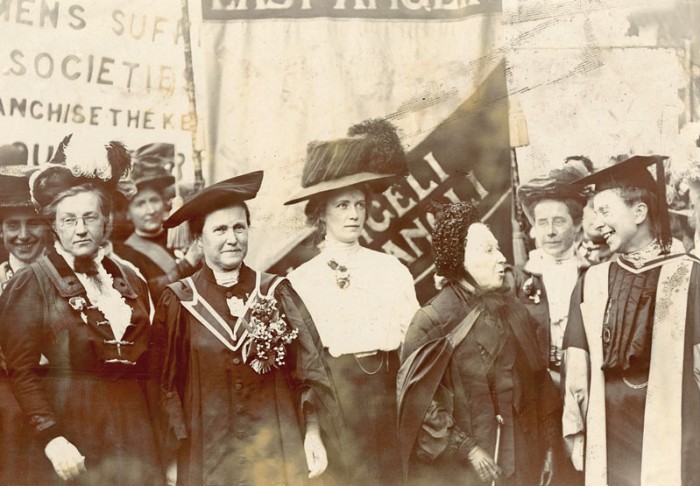
To mark this year’s International Women’s Day, we unearth Britain’s pioneering women and celebrate their legacy
Powerful women have driven British history. From Queen Elizabeth I’s golden age to the long and successful reign of late Queen Elizabeth II, female leaders have matched and often surpassed their male counterparts. Yet aside from famous figures, many others have broken the boundaries imposed on their sex and blazed a trail in their fields, only for their achievements to be largely forgotten. So, to mark International Women’s Day on 8 March, we’ve gone in search of great British pioneering women to celebrate their groundbreaking brilliance.
Britain’s pioneering women
MATILDA (1102-1167)
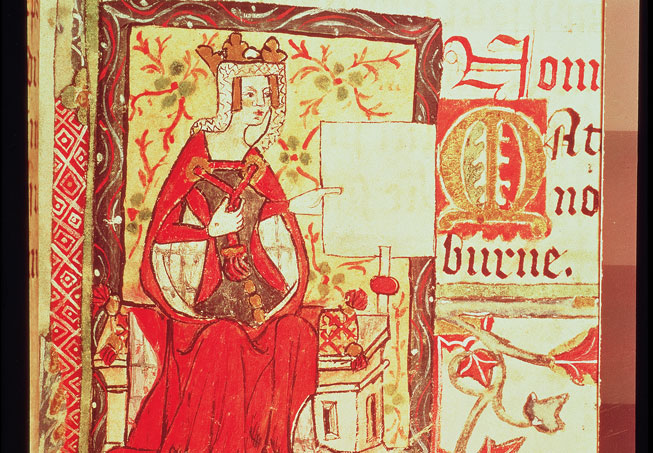
Officially, Mary I became the first queen to rule England in 1553 but there is an earlier contender – Matilda. Born the daughter of King Henry I in 1102, her determination to assert her rights plunged England into a 12-year civil war known as the “Anarchy”. Despite Matilda being named his legitimate heir in 1120, when Henry I died in 1135, his cousin, Stephen de Blois, had himself crowned. Stephen’s claim to the throne was weak and Matilda would not capitulate. Still in control of large swathes of the country and with her legitimacy upheld by her half-brother Robert of Gloucester and uncle, David I of Scotland, Matilda arrived at Arundel Castle in Sussex – the stone apartments constructed to accommodate her survive to this day – in September 1139 to press her claim, sparking a civil war.
In 1141, she imprisoned Stephen following a battle at Lincoln Castle, during which time she was effectively queen, although she preferred to style herself “Lady of the English”. Yet she was never crowned and proved ultimately unable to prevail. Escaping back to France, she later struck a deal to see her son claim the throne as King Henry II in 1154.
ANNE CONWAY (1631-1679)
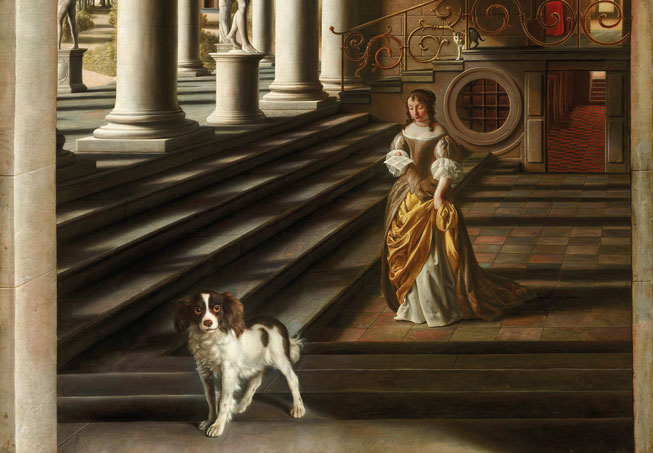
The female rulers of the Tudor era, Mary I and Elizabeth I, are among the most famous of British monarchs. Educated and erudite, the two women were able to assert their authority with the help of an education that far surpassed anything previously available to their sex. And, by the mid-17th century, another similarly well-educated woman, Anne Conway, would become the country’s first female philosopher.
Born Anne Finch in 1631 in what is now Kensington Palace, she and her siblings were well tutored, encouraged by their independently minded mother and grandmother, and, although she was still unable to attend university formally, her half-brother, John Finch, introduced her to Henry More, his Cambridge tutor. She would grow from More’s informal pupil to his friend and intellectual equal, with the philosopher telling her she had “in the knowledge of things as well Natural and Divine, you have not only out-gone all of your own Sex, but even of that other also.”
In 1651 she married philosophy-loving Edward Conway, later 1st Earl of Conway, taking up residence at Ragley Hall and followed a singular intellectual path right up until her death in 1679.
MARY WOLLSTONECRAFT (1759-1797)

Although perhaps as famous as the mother of Frankenstein author Mary Shelley, Mary Wollstonecraft was the first feminist and one of British history’s most pioneering women. A writer and philosopher, her 1792 A Vindication of the Rights of Woman – in which she argues that women are not naturally inferior to men and only lack education, as well as suggesting women are rational beings – is today a staple of academic thinking, despite her reputation lying in tatters for a century as a result of her unconventional lifestyle.
Born in Spitalfields, London, Mary endured a troubled childhood before falling in with an intellectual crowd. Supporting herself by writing, she headed to France where the emergence of the philosophical spirit and the concept of “enlightenment” reached its apex with the French Revolution in 1789. But while the question of the rights of men engendered lively debate at that time, a woman’s lot remained unconsidered.
Wollstonecraft, however, was determined to change this and the Vindication added a powerful female voice to the issue of political emancipation. In 1797, she gave birth to her second child, Mary, but would die of septicaemia a few days later.
ADA LOVELACE (1815-1852)
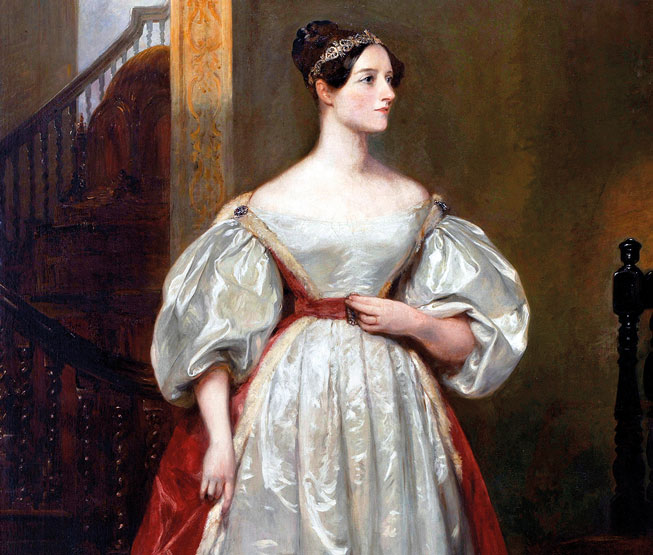
Described as the “Enchantress of Numbers” by polymath Charles Babbage, Ada Lovelace was born Ada Gordon in 1815, the only child of a short, empestuous marriage between Lord Byron and Annabella Milbanke. Fearing her father’s troublesome temperament might assert itself, Ada’s mother had her schooled in science, logic and maths with astonishing results – as a child, she imagined and designed steam flying machines.
Although she married William King at the age of 19, becoming Lady Ada King, Countess of Lovelace, when he was made Earl of Lovelace, she remained committed to her work. In 1833, her mentor, scientist Mary Somerville, introduced her to Charles Babbage, the mathematician famed for his visionary machines, including an Analytical Engine, which bore the essential elements of a computer.
In 1842 Lovelace translated and expanded an article about the engine to include several early “computer programs”, as well as prescient observations of the machine’s potential. Often referred to as the “first computer programmer”, her notes were critical to Alan Turing’s work in the 1940s. Although she died of cancer at the tender age of 36, she is remembered as one of the leading lights of women in technology.
OCTAVIA HILL (1838-1912)

Her name may not be on everyone’s lips but the importance of the reformer’s ideas can hardly be overstated: from housing to philanthropy, arts policy to feminism, welfare reform to conservation, affordable housing and social work to co-founding the National Trust, her legacy has helped create modern Britain and she deserves a place in our list of pioneering women.
Born in Wisbech, Cambridgeshire in 1838, when her father’s bankruptcy led to deep depression, Octavia’s mother moved the family to London, got a job and encouraged her daughters to do the same.
The poverty Octavia witnessed in inner city London horrified her and social housing became her passion. In 1864, her friend art critic John Ruskin helped her purchase her first properties in Marylebone, London. Never financially reckless, she expected the poor to help themselves while housing managers sought to help transform their habits through personal contact, forming a nascent social service.
Octavia also campaigned for London’s green spaces to “be kept for the enjoyment, refreshment, and rest of those who have no country house”, and co-founded the National Trust when she helped to save Alfriston Clergy House in Sussex, which became its first property. Today the family home at Wisbech is open to the public as Octavia Hill’s Birthplace House, a Grade II-listed building and museum dedicated to celebrating her influence.
MILLICENT FAWCETT (1847-1929)
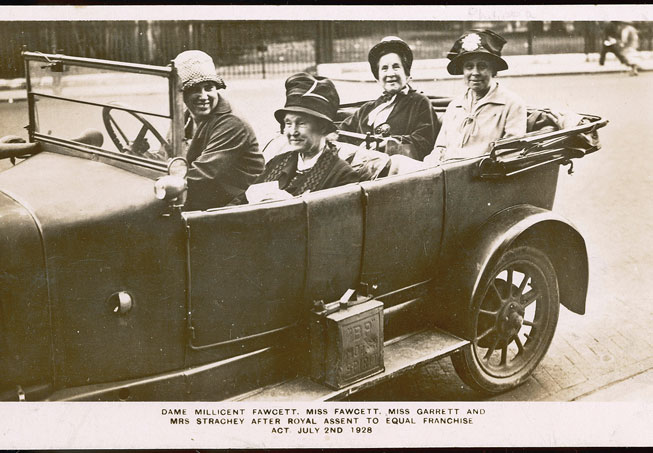
The Pankhursts dominated the battle to win women the vote but we should not forget the contribution of Millicent Fawcett, one of Britain’s most pioneering women who campaigned tirelessly as a suffragist (rather than a suffragette – her methods were always peaceful and lawful).
Born Millicent Garrett in Aldeburgh in 1847, she led a powerful mass campaign using her skill and knowledge to affect change within parliament – a battle it would take her 60 years to win.
Known as both a hard-headed and good-humoured rationalist, Millicent’s path was set when, at the age of 19, she heard a speech by MP John Stuart Mill. An early advocate of universal women’s suffrage, radical reformer and one of the most influential thinkers in the history of liberalism, Mill introduced her to other women’s rights activists, including Henry Fawcett, a Liberal MP she would later marry.
Becoming secretary of the London National Society for Women’s Suffrage, in 1896 Fawcett presided over the joint meetings of the suffrage societies, which resulted in the National Union of Women’s Suffrage Societies, of which she was president from 1907 to 1919.
She took a moderate line and concentrated on improving women’s opportunities in higher education and, in 1871, co-founded Newnham College, Cambridge, only the second college at the university to admit women. She was awarded a damehood in 1925, dying four years later.
Read more:
Best places to visit in Cornwall, Devon, Dorset and Somerset



